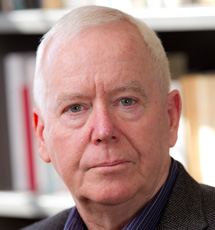Office in Agamben, Pufendorf, and Kant: A Seminar on Agamben’s Opus Dei
|
Over the last two decades there has been a notable upsurge of interest in the concept of ‘office’ within the humanities and social sciences. One major contribution to this burgeoning field has come from the Italian philosopher Giorgio Agamben, whose Opus Dei provides a genealogy of office, with a special focus on how the effectivity of an office should be distinguished from the moral personality of the individual who occupies it. This distinction is also a central feature of historical and sociological discussions of office. Agamben’s account, however, is grounded in a sophisticated modern theology that combines Catholic and Heideggerian themes. Moreover, his central construction of office occurs through a modelling of the figure of the Catholic priest. What does it mean that theology is once again sharing the intellectual stage with history and sociology in the academic discussion of these issues? And what is it that makes the office of the priest central to a discussion of office in general? Finally, what are the consequences of Agamben’s theological and sacerdotal construction of office for the question of the distinction between the effectivity of office and the morality of the individual who occupies it? These are some of the questions that I will raise in the seminar, in part by examining Agamben’s treatment of Pufendorf and Kant, and in part by looking at how they deal with the concept of office and the duties of the priest. The seminar will follow Velux Prof Hunter's presentation and a response by Prof Mitchel Dean. Ian Hunter is Velux Visiting Professor at the ‘Office as a Vocation’ Project at IOA and the Public-Private Platform and Professor Emeritus at the Centre for the History of European Discourses, University of Queensland, Australia. He has undertaken extensive research on the history of early modern political, religious and philosophical thought as well as on the history of contemporary theory in the humanities and social sciences. |

Programme:
14.30: Welcome by Paul du Gay, Academic Director at the CBS Public-Private Platform
14.40: Talk by Ian Hunter
15.15: Comments by Mitchell Dean
16.00: Open discussion, moderated by Paul du Gay
16.30: Light reception